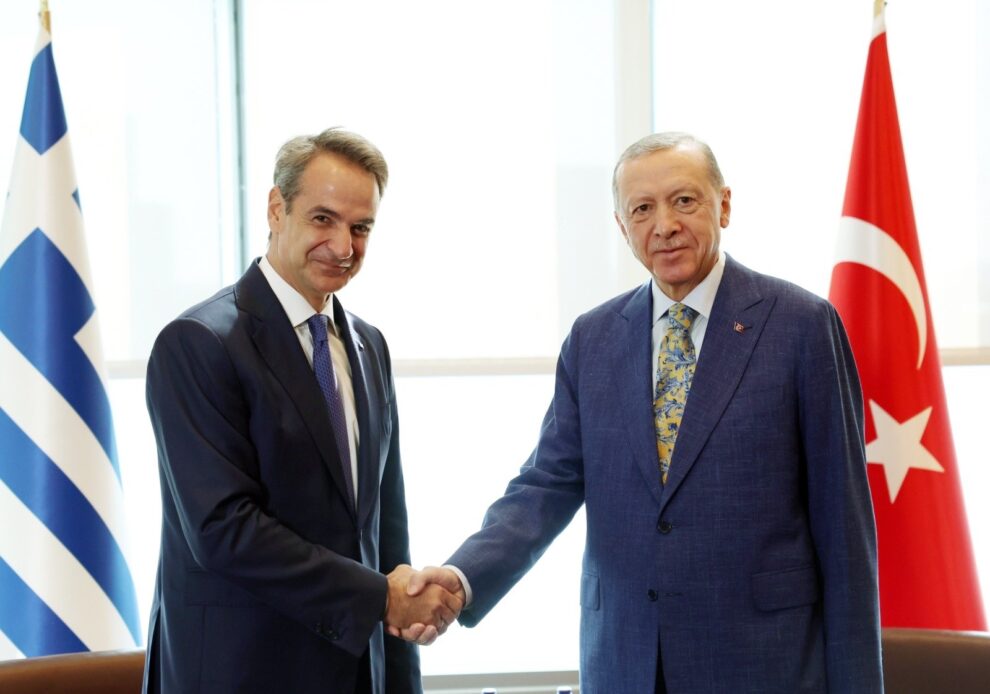In the realm of international relations, where disputes often overshadow cooperation, Türkiye and Greece find themselves at a pivotal moment. Traditionally viewed as contentious neighbors, recent diplomatic efforts suggest a potential shift toward a more collaborative future. The catalyst for this change can be traced back to what is now referred to as “earthquake diplomacy,” an unforeseen consequence of the tragic events that unfolded in Türkiye’s southeastern provinces on Feb. 6.
While NATO allies, Türkiye and Greece have grappled with a host of conflicting issues, ranging from militarization disputes over Aegean islands to maritime boundaries and the enduring discord over the island of Cyprus. These contentious matters have, at times, brought the two nations perilously close to armed confrontation. However, the current diplomatic phase of rapprochement signals a willingness to engage in constructive dialogue and overcome longstanding disagreements.
Amid these challenges, both countries acknowledge the influence of external actors, particularly the United States and certain influential European Union members, in exacerbating their rivalry. Ankara contends that Athens, swayed by geopolitical interests in the East Mediterranean, often falls into the trap of external influence. Yet, despite these external pressures, leaders from both nations are poised to make renewed efforts to mend strained ties.
Restoring ties
Nonetheless, the leaders of the two countries will once again make an effort to restore the long-strained ties on Dec. 7, when President Recep Tayyip Erdoğan is expected to visit Athens as part of efforts to open a new page in bilateral relations. Erdoğan and his delegation will be in the Greek capital for the Greek-Turkish High-Level Cooperation Council where they will discuss the bilateral ties with Greek Prime Minister Kyriakos Mitsotakis.
“We had our disputes with our neighbor Greece yesterday and we will have them tomorrow. Likewise, there will be those who seek to profit from these conflicts, but this fact does not mean that we cannot meet on common ground as two neighboring countries that share the same sea, the same climate and the same geography. We can develop our cooperation based on mutual trust on many topics,” Erdoğan said on Nov. 29 during his address to the ruling Justice and Development Party (AK Party) lawmakers at the Turkish Parliament.
Greek officials have also voiced a similar positive approach. “What I keep on saying is that, irrespective of whether we resolve our basic issues concerning delegation of military zones, it is by itself important to extend the period of calmness over the Aegean for as long as we can,” said Greek Foreign Minister George Gerapetritis in an interview on Nov. 28.
Both Erdoğan and Greek Prime Minister Kyriakos Mitsotakis express their commitment to fostering a positive climate in relations, as observed during their meeting in September in New York.
Dialogue is crucial for confidence-building
While acknowledging that historical conflicts cannot be swiftly resolved, it is crucial to keep communication channels open, particularly during confidence-building efforts related to security and military matters. Cooperation on addressing illegal migration, a shared challenge for both countries, could serve as a steppingstone to bridge gaps and minimize the human and social costs associated with the issue.
Ankara’s expectation from Athens is clear: eliminate the influence of third parties from direct talks with Türkiye. Embracing an “agree to disagree” approach could pave the way for a mutually beneficial equation. The focus on positive aspects, such as “calmness in the Aegean,” improved cultural ties, and enhanced bilateral trade and economic relations, can foster a win-win scenario for both nations.
In the intricate landscape of international relations, countries need not to agree on all matters. Compartmentalization, openness to dialogue and negotiation on disagreements can unveil new horizons for cooperation. By concentrating on the positive aspects, Türkiye and Greece can minimize the impact of issues that have historically strained their relationship.
Beyond political differences, the two neighbors have consistently stood by each other in times of nonpolitical disasters and humanitarian challenges, such as forest fires or earthquakes. Shared history – keeping in mind that the readings of history could be controversial depending on who reads it – and cultural similarities, evident in aspects like food and music, provide an additional dimension to diplomatic efforts aimed at repairing strained ties.
Ultimately, as Türkiye and Greece navigate the complexities of their relationship, a positive, win-win approach can bring them closer than historical geopolitics might suggest, benefiting both nations.
Source : Daily Sabah
















